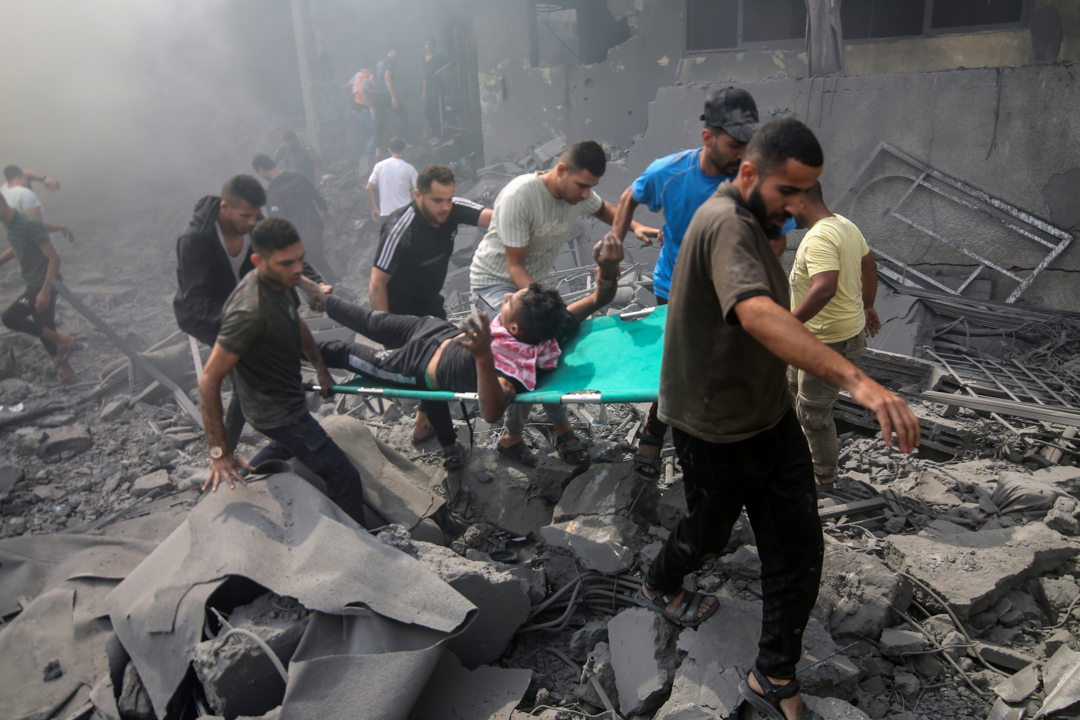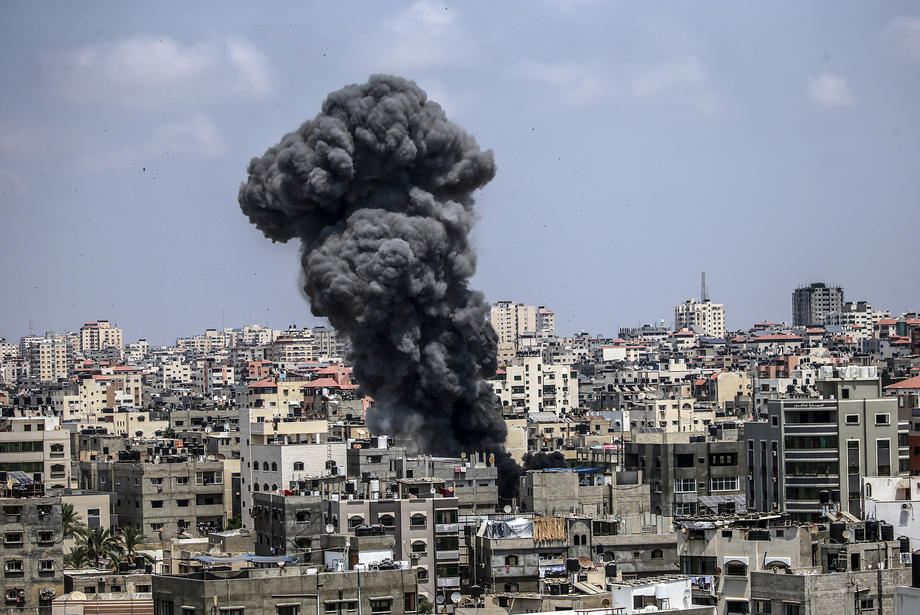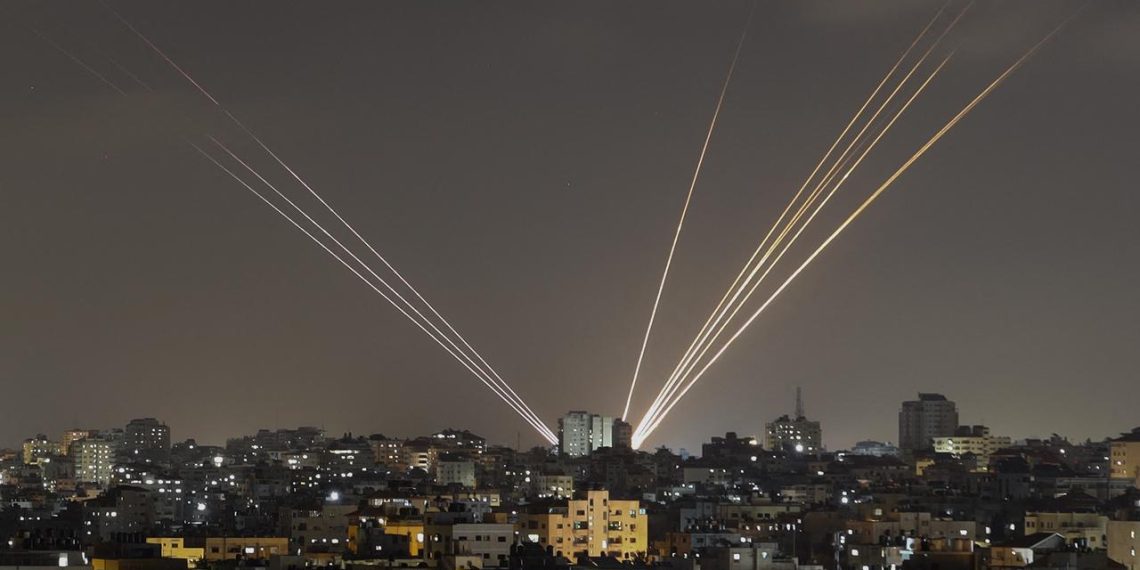Iran’s missile strike on Israel triggered a spectrum of emotions among Palestinians in Gaza. While many expressed gratitude and hope, some remained skeptical about Iran’s true intentions.
Abu Abdallah, speaking from Gaza, expressed optimism, noting that the missiles launched by Iran were aimed at Israeli territory rather than Gaza. He saw this as a potential shift in the dynamics of the conflict, hoping it could bring Gaza closer to a resolution.

Support for Iran’s actions came from various quarters within Gaza. Iran and its regional allies, including Syria and Yemen’s Houthi group, were lauded for standing with Gaza against Israeli aggression.
Residents cheered as Iranian rockets lit up the sky, seeing it as a daring act against Israel’s dominance.
Majed Abu Hamza, a father of seven, reflected the sentiment of many Palestinians, praising Iran’s retaliation after its embassy compound in Syria was targeted. He expressed joy at seeing a powerful entity challenge Israel, especially amid the ongoing conflict in Gaza.
However, not everyone in Gaza fully embraced Iran’s actions. Some Palestinians viewed it as a symbolic gesture aimed at preserving Iran’s dignity rather than delivering tangible results for Gaza.

Munir al-Gaghoub from the West Bank criticized the strike as mere theater, lamenting the continued suffering of Palestinians.
Others on social media speculated about potential coordination between Iran and the U.S., questioning the effectiveness of the attack given the relatively low impact on Israel.
Despite the skepticism, the missile strike reignited discussions about the Palestinian cause and Iran’s role in the region.





